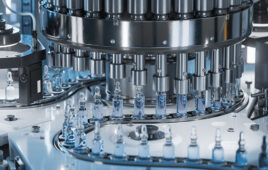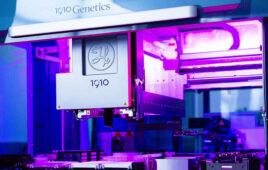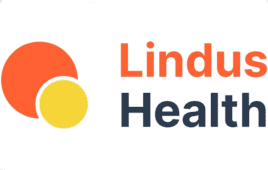
[Adobe Stock]
Merck has been working with AWS and Accenture for several years whereas Amgen and AWS have collaborated for more than a decade.
Reflecting on AWS’s presence in the life sciences, Dan Sheeran, general manager of healthcare and life sciences at AWS, noted the company works with thousands of global healthcare and life sciences customers, including nine of the top 10 pharma companies.
“Healthcare and life sciences organizations are increasingly turning to AWS and technology as a business differentiator—especially with the explosion of generative AI,” Sheeran said. “Our pharma company customers are particularly excited about how generative AI can help in drug discovery.”
Amgen taps AWS’s generative AI and machine learning capabilities
In its expanded collaboration with AWS, Amgen will develop generative AI and machine learning models to optimize clinical trials, regulatory filings, and other R&D efforts. The companies will also work together on generative AI for Amgen’s commercial and operations teams using AWS services such as the generative AI platform Amazon Bedrock and Amazon SageMaker JumpStart, a machine learning hub offering foundation models (FMs), built-in algorithms, and pre-built ML technologies.
AWS’s Sheeran noted that generative AI via Amazon Bedrock can help uncover new insights about proteins and disease pathways, identifying new oncology targets. “Today, this is a manual process to aggregate information across data sources. But AI can help to identify and collate relevant data and scientific content from many more sources in a fraction of the time,” he said. Sheeran added that AI algorithms can also assess trends to generate and validate potential targets and ultimately improve probability of success. “There are other applications, too, like identifying potential adverse drug reactions, and searching clinical trial datasets,” he added.
Merck’s strategic cloud transition with AWS and Accenture boosts drug discovery and IT infrastructure
In a separate deal, AWS and consulting firm Accenture will help Merck migrate a substantial portion of its IT infrastructure to AWS as part of a multiyear cloud transition project. This partnership involves using AWS analytics and AI services across Merck’s various divisions, including research, manufacturing, human health, and veterinary medicine. On AWS, Merck aims to strengthen its high-performance computing capabilities to speed up drug discovery through services like AWS HealthOmics, including running HealthOmics managed workflows such as AlphaFold for enhanced protein model prediction. Merck has also employed AI and machine learning on AWS in a manufacturing platform that helps identify complex defects in medicines to enhance product availability and yield.
Under terms of the deal, Merck will transition core applications such as SAP, machine learning (ML), and data warehouses to AWS. Merck’s cloud modernization program emphasizes employee training, diversity, and development, with an internal academy established to upskill employees in cloud technologies.
AWS and NVIDIA also recently announced an expanded collaboration related to the use of the latter’s generative AI drug discovery platform BioNeMo, which is now available on the AWS cloud. Other pharma customers of AWS include Moderna.
Sheeran conveyed AWS’s enthusiasm about the potential for innovation in the life sciences sector, granting customers “the flexibility to choose the way they want to build with generative AI,” he said. This includes options such as allowing customers to build their own foundation models (FMs) with purpose-built ML infrastructure or using pre-trained FMs as base models to build their applications. Customers also have the option of “using services with built-in generative AI without requiring any specific expertise in FMs,” he said. The expansion of the collaborations with Merck and Amgen represents a big step in this direction.
Filed Under: Biologics, Data science, machine learning and AI



